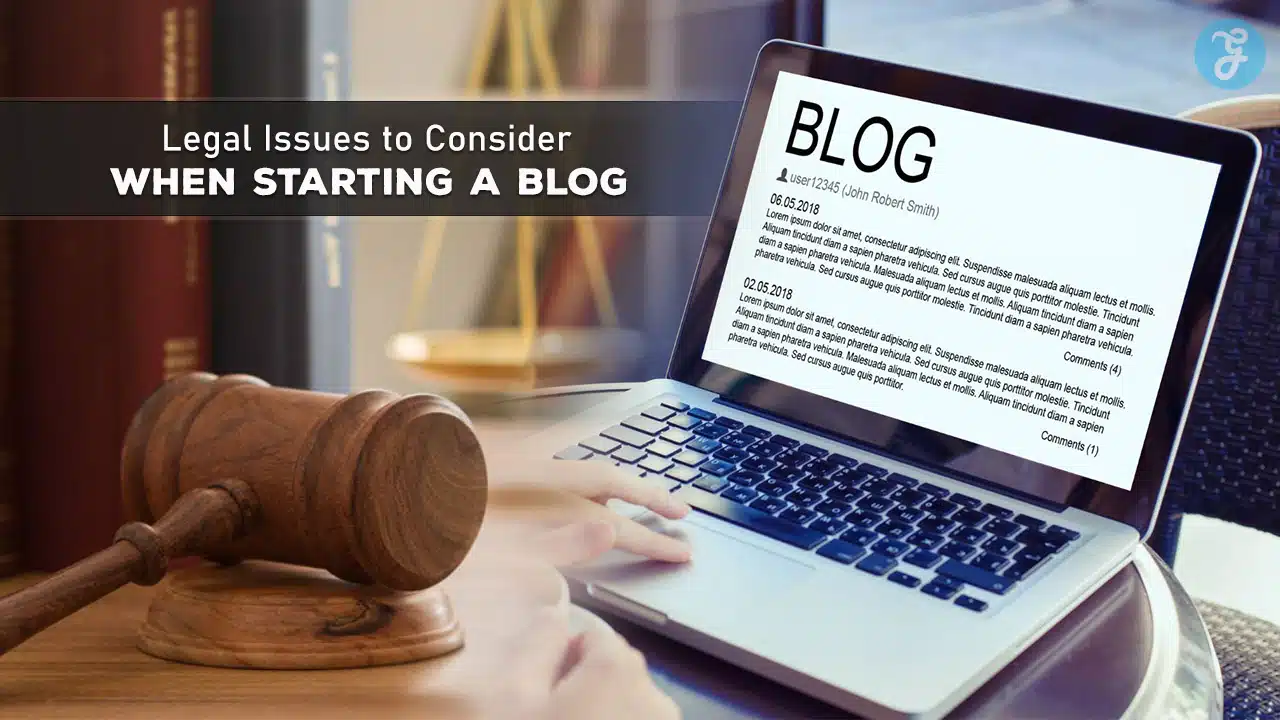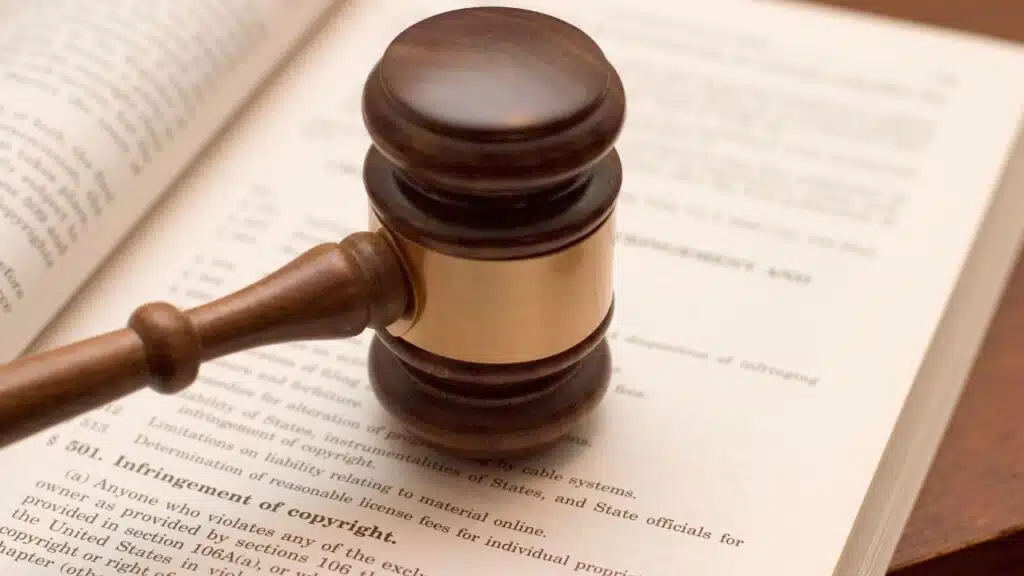Starting a blog is an exciting venture, whether it’s for sharing personal stories, building a business, or establishing authority in a niche.
While content creation and design often take the forefront, it’s equally important to consider the legal implications of running a blog.
Ignoring legal issues can lead to costly mistakes, penalties, or even lawsuits.
Understanding the laws that apply to bloggers will protect you from potential legal risks and ensure your blog runs smoothly.
In this article, we’ll explore seven critical legal issues you need to address when starting your blog.
1. Intellectual Property: Protecting Your Content
Why It Matters
As a blogger, your content is your intellectual property, and it’s vital to protect it from unauthorized use.
Intellectual property law protects original works like blog posts, images, videos, and even the layout of your website.
Conversely, you must also be careful not to infringe on others’ intellectual property rights.
What You Need to Know
- Copyrights:
As soon as you create original content (e.g., blog posts, images), it is automatically copyrighted.
However, registering your copyright provides stronger legal protection and allows you to take legal action if someone copies your work without permission.
- Fair Use:
While using other people’s work might be tempting, ensure you understand fair use laws.
Fair use allows you to use copyrighted materials under specific circumstances (e.g., for commentary, critique), but it has limits.
- Use of Licensed Images:
Avoid using images you find online without permission.
Always opt for royalty-free images, use Creative Commons licensed content, or create your visuals.
Action Step
Consider adding a copyright notice at the bottom of your blog.
You may also want to register your blog content with the copyright office for extra protection.
2. Trademarks: Protecting Your Blog’s Brand
Why It Matters
If you’re serious about building a recognizable brand through your blog, you need to consider trademark protection.
Your blog’s name, logo, or tagline can become valuable assets over time.
A trademark ensures that no one else can legally use your branding elements, protecting your identity.
What You Need to Know
- Trademark Registration:
Trademarking your blog’s name or logo prevents others from using similar branding that might confuse your audience.
It’s especially important if you plan to expand your blog into a business or sell products.
- Avoiding Infringement:
Make sure your blog name or logo does not infringe on existing trademarks.
Conduct a thorough trademark search before finalizing your brand to avoid costly legal disputes later.
Action Step
Consider conducting a trademark search using the United States Patent and Trademark Office (USPTO) or an international trademark database if your audience is global.
If your blog is for business purposes, registering a trademark should be a priority.
3. Privacy Policies: Protecting Your Readers’ Data
Why It Matters
Data privacy is a significant legal issue in today’s digital age.
If you collect personal information from your blog’s visitors—whether it’s through email subscriptions, comments, or analytics tools—you are legally required to inform users how their data is collected, stored, and used.
What You Need to Know
- GDPR Compliance:
If your blog has readers in the European Union, you must comply with the General Data Protection Regulation (GDPR).
This law requires you to clearly disclose how you collect, process, and store user data.
- CCPA Compliance:
If your blog targets California residents, you may need to comply with the California Consumer Privacy Act (CCPA), which grants users rights to their personal data.
- Cookies and Tracking:
You must inform users if you use cookies to track their activities on your blog.
This is usually done through a cookie consent banner.
Action Step
Draft a clear and accessible privacy policy and post it on your blog.
The policy should explain what personal data you collect, why you collect it, and how users can request their data be deleted.
4. FTC Disclosures: Transparency in Sponsored Content and Affiliate Marketing
Why It Matters
If you make money from your blog through sponsorships, paid reviews, or affiliate marketing, you must comply with Federal Trade Commission (FTC) guidelines.
The FTC requires bloggers to disclose any material connections to the products or services they mention.
What You Need to Know
- Affiliate Links:
If you include affiliate links (where you earn a commission for sales generated through your link), you must clearly disclose this to your readers.
- Sponsored Posts:
If you receive payment or free products to write a review or mention a brand, you must disclose this relationship.
The disclosure must be clear, visible, and in proximity to the sponsored content.
- Influencer Guidelines:
Bloggers and influencers need to provide full transparency in their relationships with brands to maintain credibility and trust with their audience.
Action Step
Include a disclosure statement at the beginning or end of sponsored posts and near any affiliate links.
Make it clear to your readers that you may earn compensation for promoting certain products.
5. Defamation: Avoiding Harmful Statements
Why It Matters
Defamation is the act of making false statements that harm another person’s reputation.
As a blogger, your posts are public and can reach a wide audience, so it’s important to be mindful of what you write.
Defamatory statements can result in lawsuits, which are often costly and time-consuming.
What You Need to Know
- Libel vs. Slander:
Written defamation is called libel, while spoken defamation is slander.
As a blogger, you must be cautious about making factual claims about individuals or companies that could be considered defamatory.
- Opinion vs. Fact:
Be sure to differentiate between your opinion and statements of fact in your posts.
Stating an opinion, even a negative one, is usually protected under free speech.
However, making a false statement of fact can lead to defamation claims.
- Accurate Sources:
Always use credible sources for your claims, especially if you’re writing about sensitive or controversial topics.
Linking to well-researched and reliable references can protect you from defamation claims.
Action Step
Review your posts carefully, especially if they involve critical commentary on individuals or organizations.
Avoid making unverified claims that could be seen as defamatory.
6. Copyright Infringement: Avoiding Plagiarism
Why It Matters
Using someone else’s work without permission can result in copyright infringement claims.
It’s critical to realize that copyright law protects almost all creative works, whether they are texts, images, videos, or musical compositions.
You must ensure that everything you publish on your blog is either your original content or properly licensed.
What You Need to Know
- Text and Articles:
Copying text from other websites without permission can lead to copyright violations.
Even short excerpts can be problematic if not properly credited.
- Images and Graphics:
Using images from search engines without permission is one of the most common mistakes bloggers make.
Always ensure that you have the right to use an image, whether it’s purchased from a stock photo site or available under a Creative Commons license.
- Videos and Music:
Embedding videos or music in your blog posts can also infringe on copyright unless you have explicit permission or the material is in the public domain.
Action Step
Use tools like plagiarism checkers to ensure your content is original.
When using external resources, give proper attribution and ensure you’re in compliance with copyright law.
7. Terms of Service: Setting Ground Rules for Your Blog
Why It Matters
A Terms of Service (ToS) page outlines the rules for visitors using your blog.
It protects you legally by establishing your rights and limiting your liability in case of disputes or misuse of your content.
While this document is often overlooked, it can be essential in protecting you from legal challenges.
What You Need to Know
- Limitations of Liability:
Your ToS can include a clause that limits your liability for errors or inaccuracies in the content you publish.
- User Conduct:
If your blog allows comments or user-generated content, your ToS should clearly outline acceptable behavior and your right to remove offensive or harmful content.
- Jurisdiction:
You can specify the governing law and jurisdiction in your ToS, which dictates where legal disputes must be resolved.
Action Step
Create a Terms of Service page and link it in your blog’s footer.
Ensure it covers key issues like liability, content ownership, and user conduct.
Wrap Up
Starting a blog comes with exciting opportunities, but it also comes with legal responsibilities.
Understanding and addressing the legal issues mentioned above—intellectual property, trademarks, privacy policies, FTC disclosures, defamation, copyright infringement, and terms of service—will protect your blog from legal challenges and help you build a professional, credible platform.
By proactively handling these legal concerns, you can focus on growing your blog and engaging with your audience, knowing that your blog is legally secure.







































